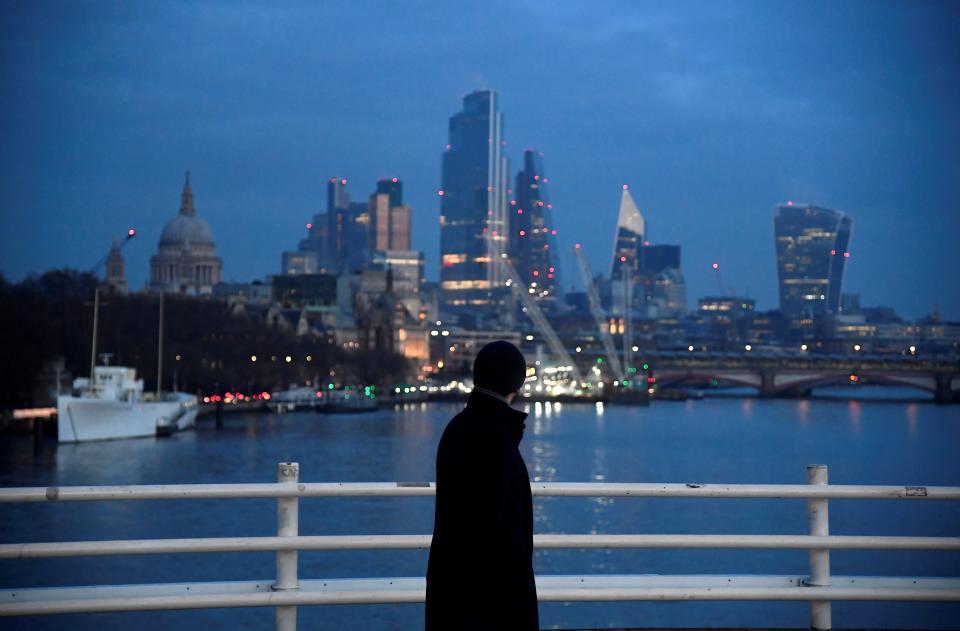Deprived London areas worst hit by coronavirus as UK warned: Learn lessons from grim Covid death toll

The grim analysis came as the Government was at the centre of a growing storm over whether thousands of lives could have been saved if it had acted more swiftly and decisively against the virus
(REUTERS)Covid-19’s devastating impact on London was laid bare today with some of its most deprived boroughs the hardest hit in the country.
Newham has the highest death rate from coronavirus in England and Wales, according to official figures for March to December, with London the second worst affected region.
The grim analysis came as the Government was at the centre of a growing storm over whether thousands of lives could have been saved if it had acted more swiftly and decisively against the virus.
Scientists warn that the death toll of more than 100,000 could rise by up to 50,000 within months.
Despite the UK having one of the worst Covid fatality rates in the world, Cabinet minister Robert Jenrick this morning insisted that the Government “took the right decisions at the right time”.
However, Professor Neil Ferguson, the Imperial College London epidemiologist whose work was key to the first lockdown, believes “a lot of the deaths” could have been avoided if more drastic action had been taken against the second wave.
“Had we acted both earlier and with greater stringency back in September, when we first saw case numbers going up, and had a policy of keeping case numbers at reasonably low levels, then I think a lot of the deaths we have seen, not all by any means, but a lot of the deaths we have seen in the last four/five months could have been avoided,” he said.
The Office for National Statistics figures show:
- Newham has the country’s highest death rate due to Covid, of 328.3 per 100,000 people.
- Barking and Dagenham was 7th highest at 288, Tower Hamlets 12th at 274.1, Brent 13th at 268.7, and Redbridge 20th at 254.3.
- London had the second highest regional death rate at 198.9, with only the North West higher at 207.1.
The death rate in Newham was more than two-and-a-half times higher than Camden at 115.7, with many poorer boroughs with larger ethnic minority populations worse hit than affluent areas such as Richmond at 120.3, Westminster at 137.1, and Kingston at 145.9.
The ONS figures are for deaths within 28 days of a positive test.
Confirmed Covid-19 cases have fallen in recent days but the death toll is set to rise higher as fatalities tend to follow the trend in infections in many instances by three to four weeks.
Professor Calum Semple, who sits on the Government’s Scientific Advisory Group for Emergencies, told BBC Two’s Newsnight: “It would really not surprise me if we’re looking at another 40-50,000 deaths before this burns out.”
He added that for every death there were “probably four or five people who survive but are damaged” by Covid.
In March, before the first national lockdown, chief scientific adviser Sir Patrick Vallance said keeping the death toll below 20,000 would be a “good outcome”. Boris Johnson said on Tuesday he took “full responsibility” for the response to the pandemic, adding “we did everything we could” to minimise suffering.
Mr Jenrick was repeating this today. “We do believe that we took the right decisions at the right time and now our focus is on continuing to help the country through the remaining stages of the pandemic and focus on the vaccine roll-out for which the news is good and the UK’s record holds up extremely well internationally,” he told Sky News.
He was grilled about alleged failures including over guidance on masks, shortages of PPE for health and social care staff, a lack of ventilators, Covid spreading into care homes, Eat Out to Help Out, students travelling around the country, being late to lock down, the Christmas “window” for household mixing, schools going back only to be swiftly shut for most pupils, and the lack of checks on people who come into the country.
“Some of the things that you have just described, evidence has changed, opinion has changed, that is what happens in unprecedented situations,” he said.
But Linda Bauld, Professor of public health at the University of Edinburgh, said a “legacy of poor decisions” around easing restrictions and travel, coupled with the new variant, have led to “where we are now”.
Shadow health secretary Jonathan Ashworth accused the Government of “monumental mistakes” in its handling of the crisis.
Read More
PM faces Covid deaths grilling as AstraZeneca vaccine row ramps up
Cases down by quarter in 23 boroughs as weekly total drops by 19,000
UK’s Covid death toll ‘could reach 150,000 before pandemic burns out’

 Yahoo Sport
Yahoo Sport 





































